Dancing For Charity
We were invited to a charity dance for the Children's Hospital of Orange County by Marilyn Bailey. It was held at a car dealership and was a perfect venue for meeting and greeting people plus dancing. Please join us!
Did you know? - Cinco de Mayo (Spanish for "Fifth of
May") is a regional holiday in Mexico, primarily celebrated in the state
of Puebla, with some limited recognition in other parts of Mexico. The
holiday commemorates the Mexican army's unlikely defeat of French forces
at the Battle of Puebla on May 5, 1862, under the leadership of Mexican
General Ignacio Zaragoza Seguín.
The Battle was significant for at least two reasons. First, while
outnumbered almost two-to-one, the Mexicans defeated a much
better-equipped French army that had known no defeat for almost 50
years.[5] Second, this battle was important because it would be "the
last time that an army from another continent invaded the Americas."
While significant, however, Cinco de Mayo is not an obligatory federal
holiday in Mexico.
While Cinco de Mayo has limited or no significance nationwide in Mexico,
the date is observed in the United States and other locations around the
world as a celebration of Mexican heritage and pride.[9] However, a
common misconception in the United States is that Cinco de Mayo is
Mexico's Independence Day. Mexico's Independence Day is actually
September 16 (dieciséis de septiembre in Spanish), which is the most
important national patriotic holiday in Mexico.
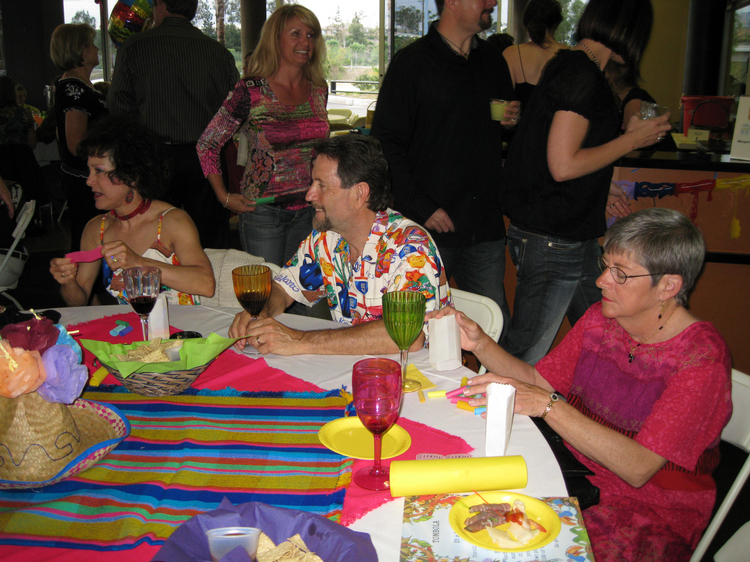
Donna and Bob were ready to dance
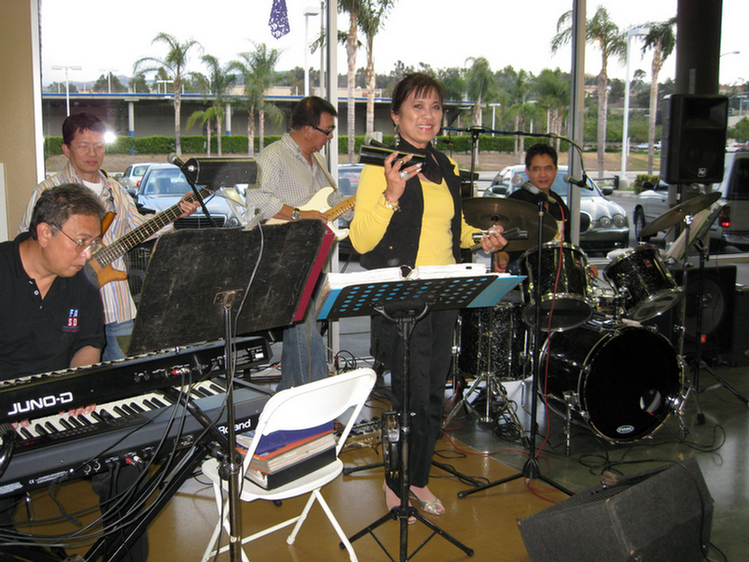
The Street Corner Symphony played great music

We bid on many of the auction items

The appetizers were super
Did you know? - If there is an extended period
between when guests arrive and when the meal is served (for example
during a cocktail hour), these might also serve the purpose of
sustaining guests during the wait. Hors d'oeuvre are sometimes served
with no meal afterward. This is the case with many reception and
cocktail party events.
Hors d'oeuvre may be served at the table, as a part of the sit-down
meal, or they may be served before sitting at the table. Hors d'oeuvre
prior to a meal are either stationary or passed. Stationary hors
d'oeuvre are also referred to as "table hors d'oeuvre". Passed hors
d'oeuvre are also referred to as "butler-style" or "butlered" hors
d'oeuvre.
Though any food served prior to the main course is technically an hors
d'oeuvre, the phrase is generally limited to individual items, not
crudités, cheese or fruit. For example, a glazed fig topped with
mascarpone and wrapped with prosciutto is considered an "hors d'oeuvre,"
whereas figs on a platter are not.
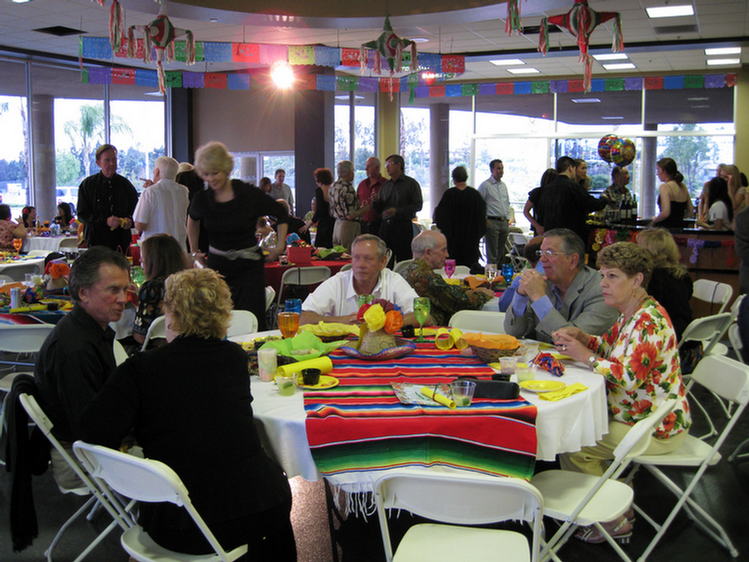
The show room was perfect for the dance!
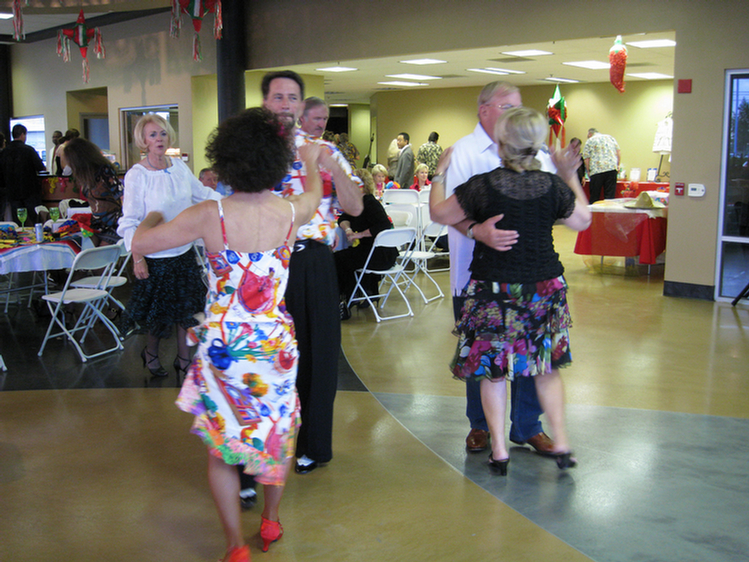
Bob and Donna led the way


Marilyn made some announcements


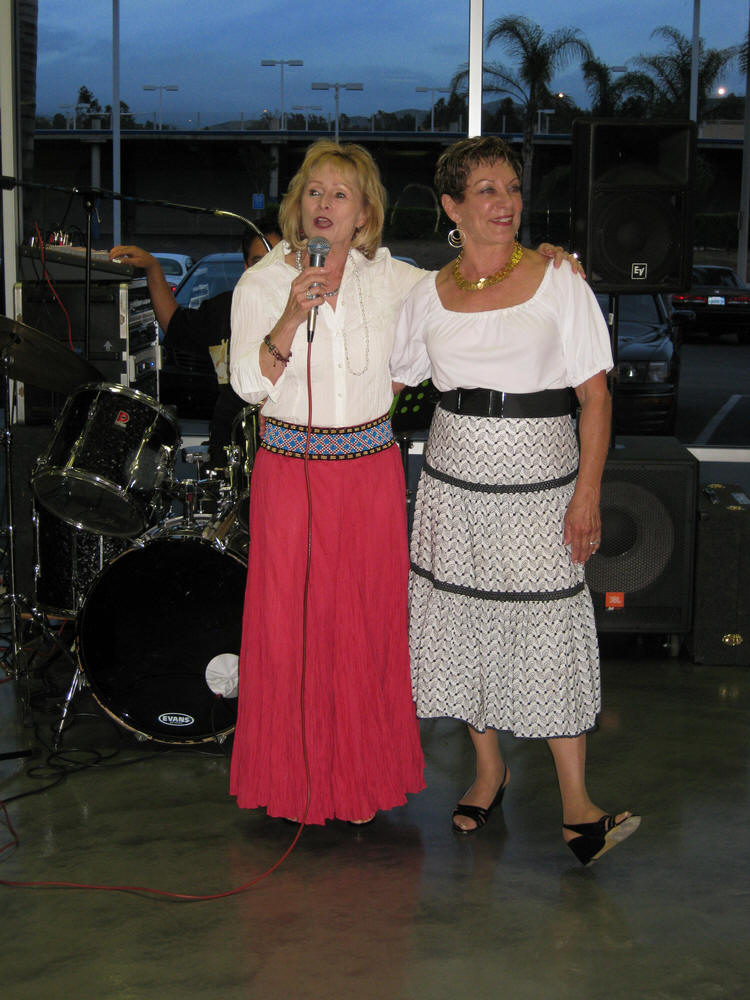
The CHOC volunteers do amazing work for the children

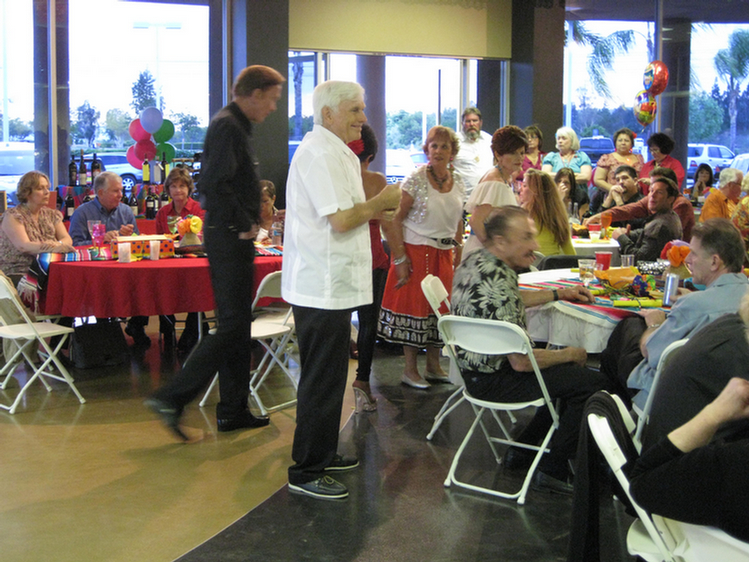
Don is holding the table down
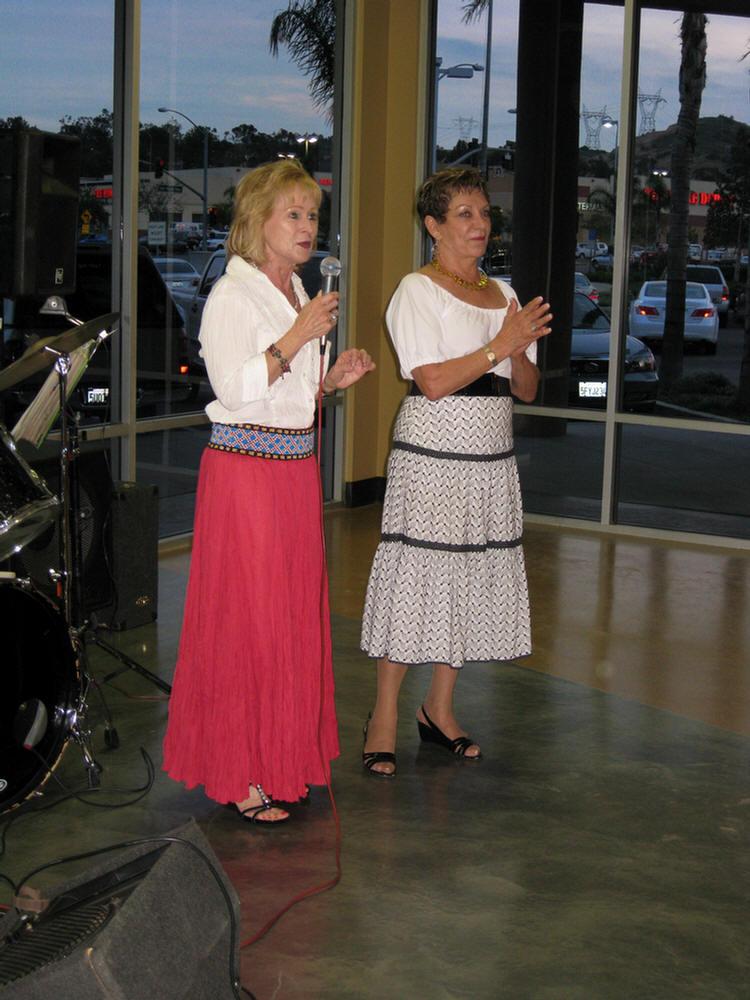

They sold almost $700 in tiny gift bags
Did you know? - A raffle is a competition in which
people buy numbered tickets. Originating in southern Italy, it is a
popular game in numerous countries and is often held to raise funds for
a specific event, charity, or occasion.
The raffle involves many people buying tickets for a chance to win a
certain prize or prizes. At a set date, the winners are drawn from a
bucket containing a copy of every number or a tombola (from
Italian: tombola ['to:mbola]). The ticket is then checked
against a collection of prizes with numbers attached to them.
A raffle also often involves several different possible prizes that can
be won, and a ticket will simply be drawn from the group at random for
each of the prizes one by one.
In Italy tombola is a very common family game played at Christmas, and is similar to bingo, the English version so popular in the United Kingdom, Ireland and, under many forms all around the world. In Italy at Christmas Eve playing tombola is a must, with all the relatives united around grandparents and small children shouting when they win a prize (adults usually don't call a prize if there are children around, to let them win). Modern tombola cards are in plastic and have on the numbers small plastic slots that can be closed down when the number is called, but traditionally they were closed by beans ("fagioli") or by pieces of orange peel, that you had to eat while playing.



Paul dressed for the occasion

The Street Corner Symphony wait in line for dinner

There was plenty of food for all
The Live Auction Begins!
Did you know? - The word "auction" is derived from
the Latin augēre, which means "to increase" or "augment".
For most of history, auctions have been a relatively uncommon way to
negotiate the exchange of goods and commodities. In practice, both
haggling and sale by set-price have been significantly more common.
Indeed, prior to the seventeenth century the few auctions that were held
were sporadic and infrequent.
Nonetheless, auctions have a long history, having been recorded as early
as 500 B.C. According to Herodotus, in Babylon auctions of women for
marriage were held annually. The auctions began with the woman the
auctioneer considered to be the most beautiful and progressed to the
least. It was considered illegal to allow a daughter to be sold outside
of the auction method.
During the Roman Empire, following military victory, Roman soldiers
would often drive a spear into the ground around which the spoils of war
were left, to be auctioned off. Later slaves, often captured as the
"spoils of war", were auctioned in the forum under the sign of the
spear, with the proceeds of sale going towards the war effort.

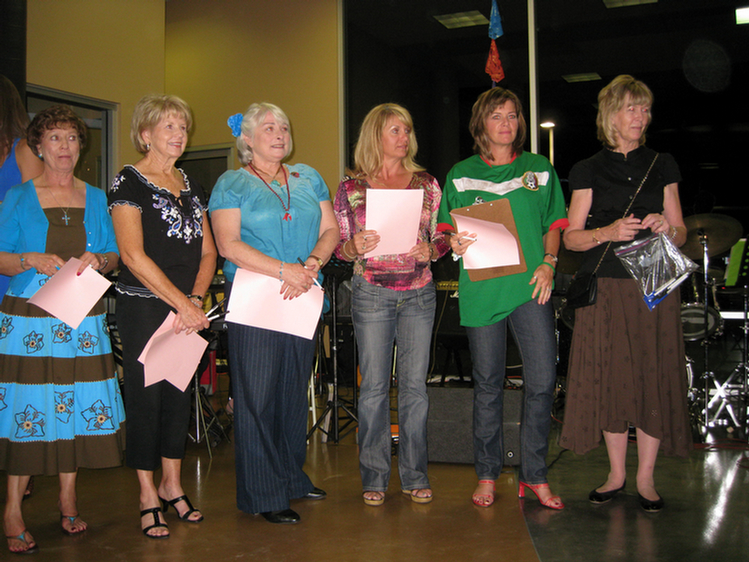
The ladies run to the winner and provide them the documents to claim their
treasure




Resting for the next dance set!
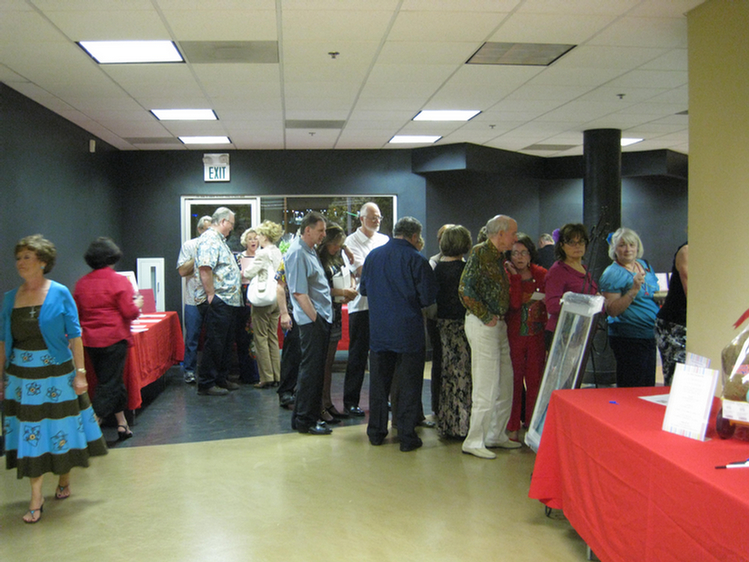
People lined up to claim their silent auction items

Would you by a car from this man??
The Next Dance Set Begins With An "All Dance"

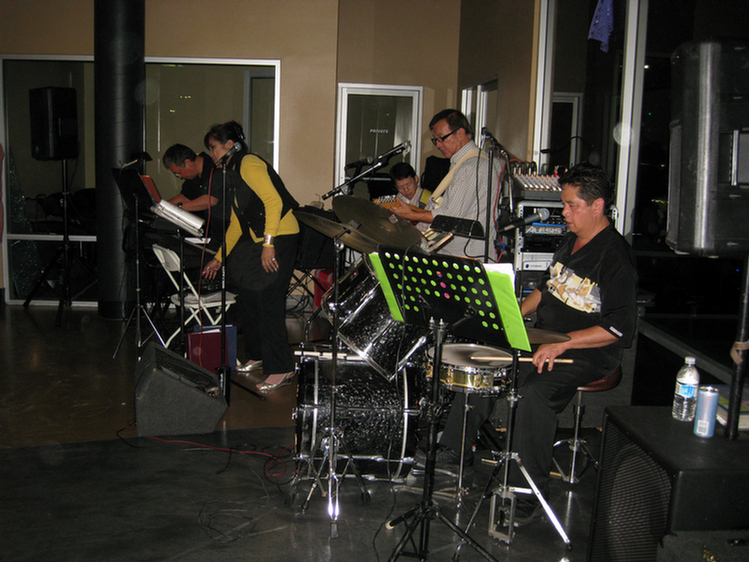

Girls gone wild
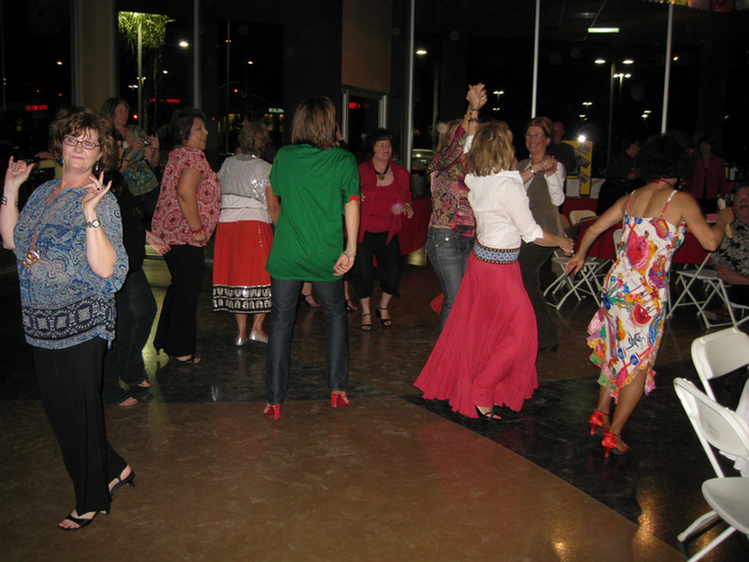
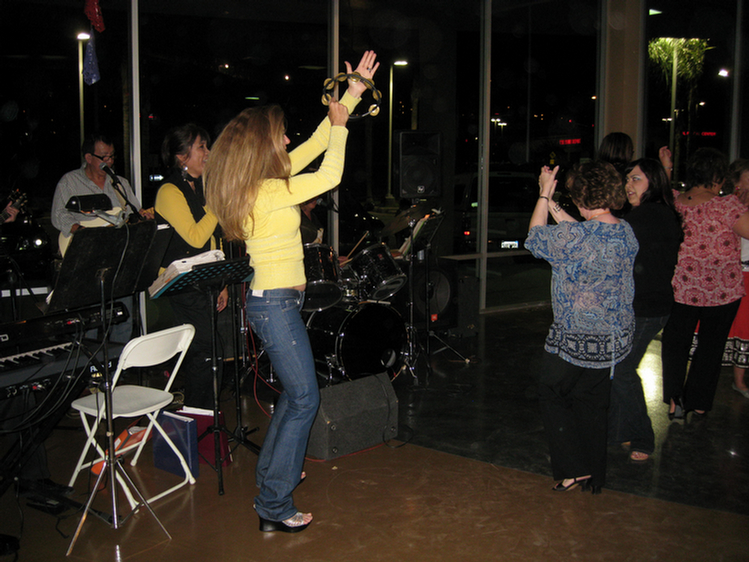
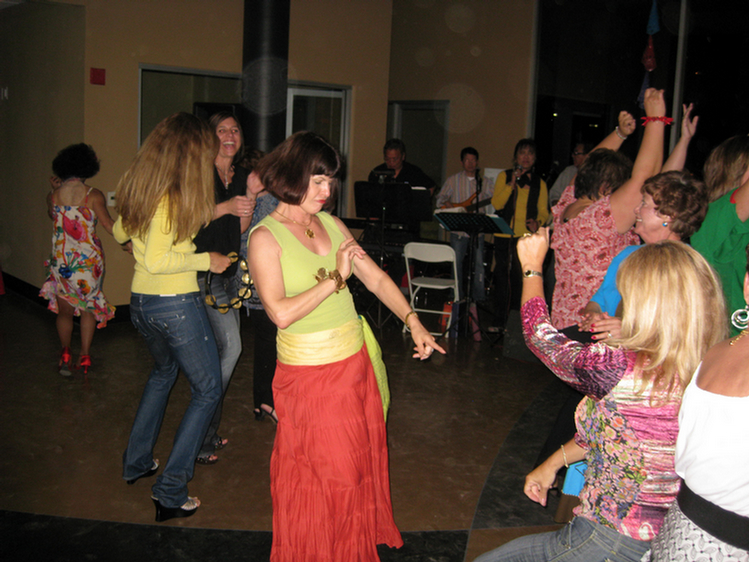
Finger action is important (I guess)

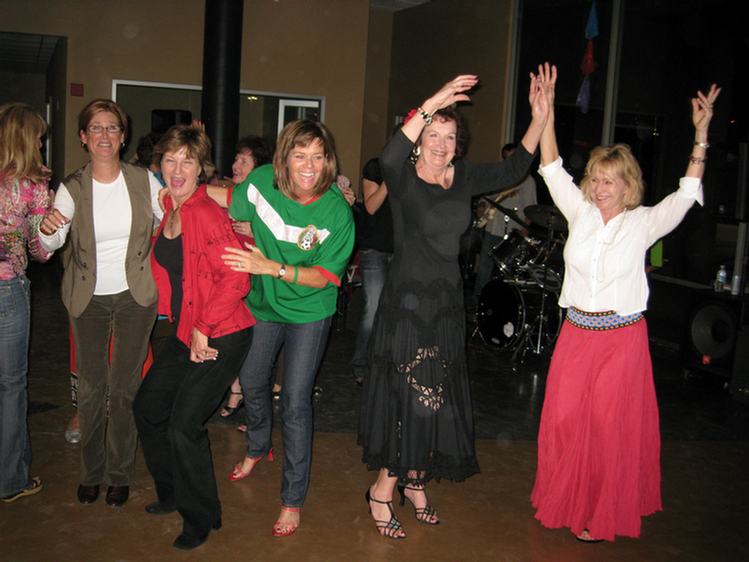
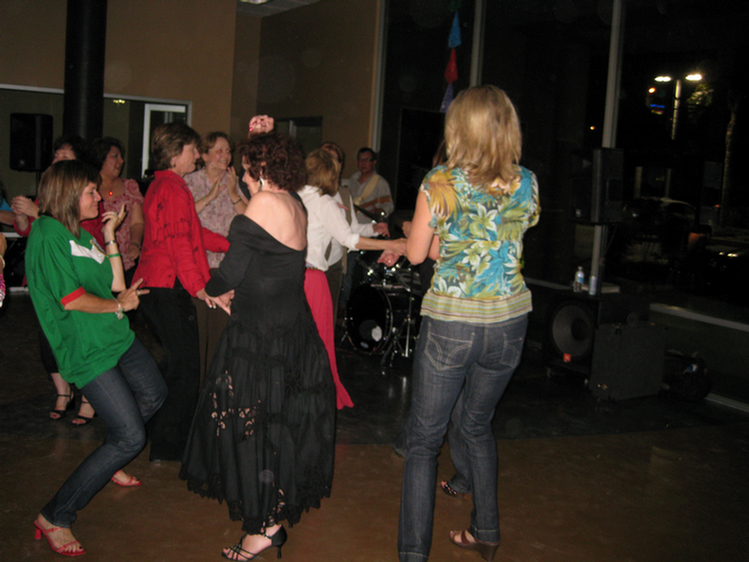

And the band plays on....

The Doctor Of Dancing shows how it is done... Complete with air conditioning


Paul & Sue
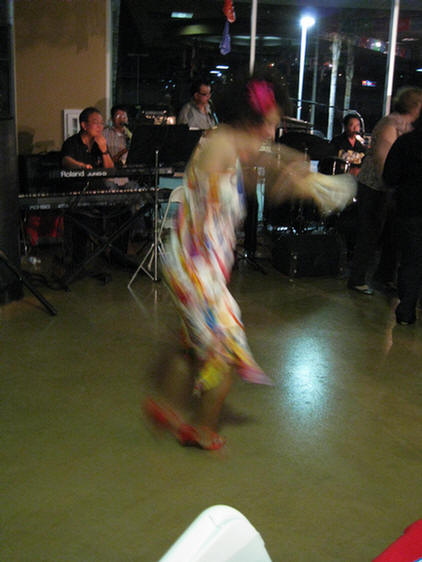
The camera is too slow to capture Donna in action!
Did you know? - Dance (from
French danser, perhaps from Frankish) is a sport and art form that generally
refers to movement of the body, usually rhythmic and to music, used as a form of
expression, social interaction or presented in a spiritual or performance
setting. Dance is also used to describe methods of non-verbal communication (see
body language) between humans or animals (bee dance, patterns of behavior such
as a mating dance), motion in inanimate objects (the leaves danced in the wind),
and certain musical forms or genres. In sports, gymnastics, figure skating and
synchronized swimming are dance disciplines while martial arts kata are often
compared to dances.
Definitions of what constitutes dance are dependent on social, cultural,
aesthetic, artistic and moral constraints and range from functional movement
(such as folk dance) to virtuoso techniques such as ballet. Dance can be
participatory, social or performed for an audience. It can also be ceremonial,
competitive or erotic. Dance movements may be without significance in
themselves, such as in ballet or European folk dance, or have a gestural
vocabulary/symbolic system as in many Asian dances. Dance can embody or express
ideas, emotions or tell a story.
Every dance, no matter what style, has something in common. It not only involves
flexibility and body movement, but also physics. If the proper physics is not
taken into consideration, injuries can and are likely to occur.
Choreography is the art of creating dances. The person who creates (i.e.,
choreographs) a dance is known as the choreographer.
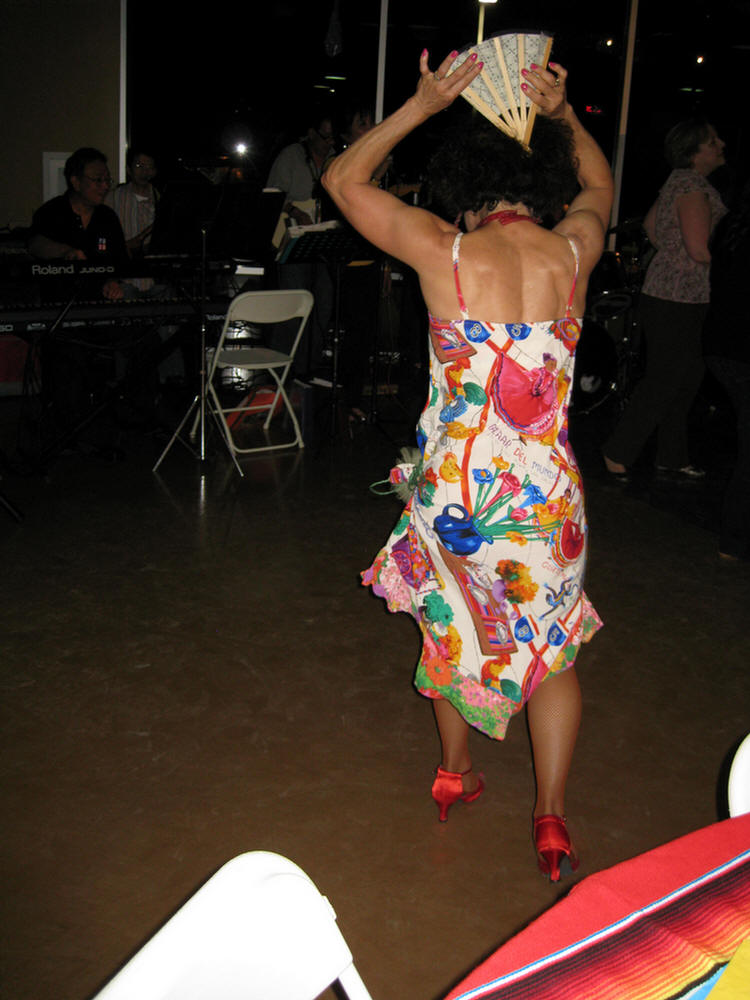



Paul gets into the spirit of things

So does Sue




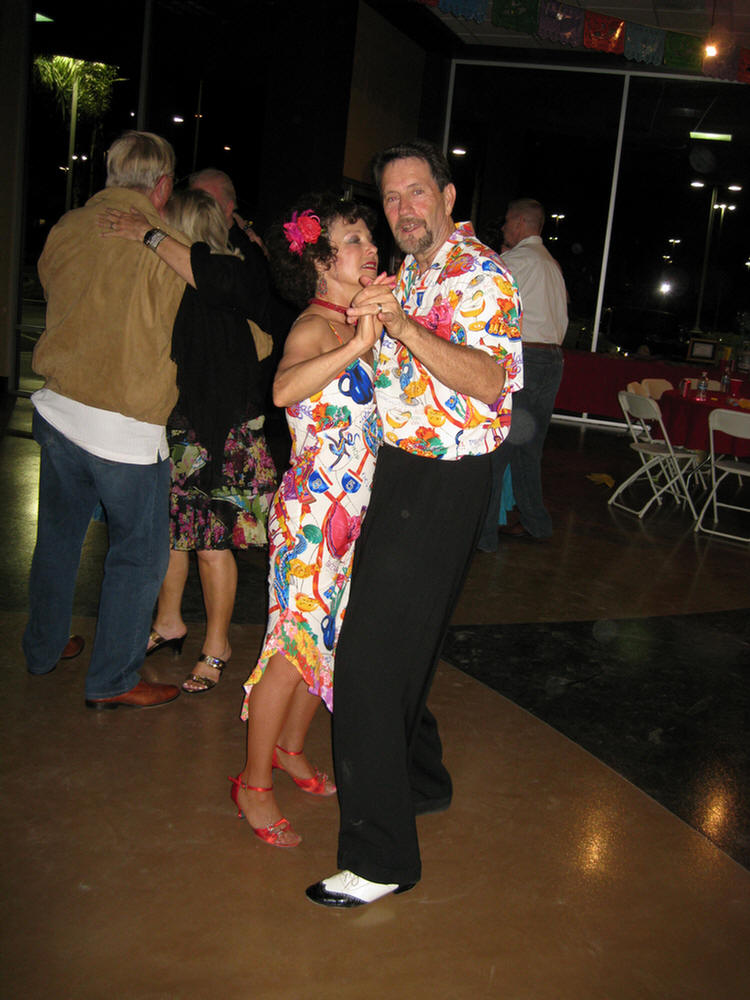

Don decides to flash

Even though the table cloths are gone, we continue to make sure no wine bottle
goes un-opened

Did You Know? - The word "charity" entered the
English language through the Old French word "charité" which was derived
from the Latin "caritas".
Originally in Latin the word caritas meant preciousness, dearness, high
price. From this, in Christian theology, caritas became the standard
Latin translation for the Greek word agapē, meaning an unlimited
loving-kindness to all others, such as the love of God. This much wider
concept is the meaning of the word charity in the Christian triplet
"faith, hope and charity", as used by the King James Version of the
Bible in its translation of St Paul's Letter to the Corinthians. However
the English word more generally used for this concept, both before and
since (and by the "King James" Bible at other passages), is the more
direct love. (See the article Charity (virtue))
St Paul's agapē was not primarily about good works and giving to the
poor[dubious – discuss] (And though I feed the poor with all my goods,
and though I give my body, that I be burned, and have not love [agapē],
it profiteth me nothing - 1 Cor 13:3, Geneva translation, 1560),
although in English the word "charity" has steadily acquired this as its
primary meaning, wherein it was first used in Old French at least since
the year 1200 A.D.